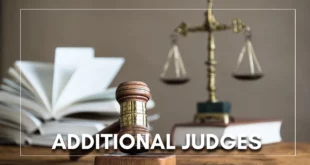- The Chief Justice of India D.Y. Chandrachud firmly refused the ‘suggestions’ offered by the government in a sealed cover on the formation of a proposed committee to enquire into the Hindenburg report on the Adani Group.
- This signals the Supreme Court’s acute awareness of how ‘sealed cover jurisprudence’ has begun to threaten the very credibility of the judicial institution.
- The decision of the three-judge Bench led by the CJI to keep the government’s sealed cover at a distance and do “its own thinking”, made it evident that the dialogue on sealed covers was no longer an academic discourse on how to balance the right to know and the need to protect national security.
- The “routine” handing over of sealed covers in court by the state, the contents of which are unknown to the other parties, often fighting for life and personal liberty, is eroding public confidence in the ‘open court’ principle of justice administration.
- The petitioners are unable to defend themselves, not knowing what they are supposed to defend against.
- Passing on materials in a sealed cover to the court compels judges to accept the state’s version, that too, in cases in which the government’s narrative is under challenge.
A history of sealed covers
- The origins of sealed cover jurisprudence can be traced to service or administrative cases. Official service records and promotion assessments of individual personnel were received in sealed cover in order to avoid harm to the reputation of officers.
- The court continues to receive confidential documents in sexual assault cases to protect the identity of survivors. However, recent times have seen the government produce myriad documents, ranging from status reports to ‘notes’, alleged evidence collected during investigation into terror and money-laundering cases.
- Rule 7 of Order XIII of the Supreme Court Rules, 2013 provides that the Chief Justice or the court can, through a judicial order, direct any document to be kept confidential in a sealed cover if publication of the records is “considered to be not in the interest of the public”.
- Section 123 of the Evidence Act of 1872 provides that the government should give prior permission to a person who wants to give evidence “derived from unpublished official records relating to any affairs of state”.
Only in ‘extenuating circumstances’
- However, the Supreme Court is now witnessing a turnaround. The court, during the Media One telecast ban hearing, orally observed that the government should claim “specific privilege” in an affidavit and explain the “extenuating circumstances” to keep documents secret from the other party.
- The court said the burden would lie on the government to prove that even sharing redacted copies of the records would prove detrimental to national security and public order. The court has made it clear that sealed covers could be used only in a “small exception” of cases.
- So far, a tiny clutch of judgments hold that the principles of natural justice and the fundamental right to know cannot be taken away by the state in an “implied fashion or in a casual and cavalier manner”.
- The most recent one was in the S.P. Velumani case verdict of May 2022 in which the Supreme Court criticised the Madras High Court’s decision to permit a report to remain “shrouded in sealed cover” when the State had not even claimed any specific privilege.
- Similarly, the court admonished the Bihar government for attempting to give information in sealed cover in the Muzaffarpur shelter case.
- The Pegasus case judgment saw the court underscore that the “Union of India must necessarily plead and prove the facts which indicate that the information sought must be kept secret as their divulgence would affect national security concerns… The state cannot get a free pass every time the spectre of ‘national security’ is raised. National security cannot be the bugbear that the judiciary shies away from”.
SOURCE: THE HINDU, THE ECONOMIC TIMES, PIB
 Chinmaya IAS Academy – Current Affairs Chinmaya IAS Academy – Current Affairs
Chinmaya IAS Academy – Current Affairs Chinmaya IAS Academy – Current Affairs



